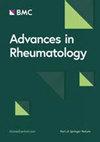编制调查问卷,评估患者对银屑病关节炎治疗挑战的看法--一项混合方法研究
IF 2.1
4区 医学
Q3 RHEUMATOLOGY
引用次数: 0
摘要
有关低收入地区银屑病关节炎(PsA)治疗的数据有限,尤其是从患者的角度来看。本研究探讨了社会经济弱势的 PsA 患者所面临的挑战以及不遵守治疗指南的原因。研究的主要目的是编制一份问卷,以确定 PsA 治疗依从性方面的主要挑战,并分析其可行性,同时了解目标人群的独特特征。我们纳入了符合 PsA 分类标准(CASPAR)的 PsA 患者,但不包括患有其他重叠炎症性疾病的患者。这项研究得到了两个患者研究合作伙伴的支持,首先通过焦点小组确定了治疗难题,然后制作了一份包含 26 个项目的调查问卷。采用重复测试法验证了问卷的可靠性,目标是问卷的一致率≥0.8。然后,风湿病诊所的PsA患者完成了最终调查。这项研究涉及 69 名 PsA 患者。最终问卷包含五个领域的 26 个问题,同意率为 92.2%,平均完成时间为 8.3 分钟。59%的患者诊断延误超过一年,33%的患者延误超过两年。43.2%的患者日常生活受到影响,35.3%的患者请病假或退休。约 25% 的患者等待药物审批的时间超过 8 周,17.6% 的患者需要法律干预才能获得药物。约 60% 的患者因配药问题而受到影响。此外,66.7%的患者住得离风湿免疫科医生很远,其中49%的患者约见医生的车程超过一小时。约 30% 的患者不了解甲氨蝶呤与饮酒和妊娠有关的风险。该调查问卷既可行又可靠,其结果凸显了在PsA管理中以患者为中心的挑战,尤其是诊断延误和药物获取,以及日常生活干扰和错误信息。这些发现强调了医疗改革的紧迫性,改革的目的是提高诊断效率、加强患者教育和简化药物获取途径,并强调需要采取有针对性的措施来改善PsA患者的医疗体验。本文章由计算机程序翻译,如有差异,请以英文原文为准。
Development of a questionnaire to assess the patient perspective regarding challenges in psoriatic arthritis treatment—a mixed-methods study
Limited data exist on psoriatic arthritis (PsA) treatment in lower-income regions, particularly from the patient perspective. This study explores the challenges faced by socioeconomically vulnerable PsA patients and the reasons for non-adherence to treatment guidelines. The main objective of the study is to develop a questionnaire to identify the primary challenges in PsA treatment adherence and to analyze its feasibility while simultaneously understanding the target population’s unique characteristics. We included PsA patients meeting the Classification Criteria for PsA (CASPAR), excluding those with other overlapping inflammatory diseases. The study, supported by two patient-research partners, began with focus groups to identify treatment challenges, leading to the creation of a 26-item questionnaire. Its reliability was verified using the test-retest method, targeting a percent agreement ≥ 0.8. Then, PsA patients at a rheumatology clinic completed the final survey. The study involved 69 PsA patients. The final questionnaire contained 26-questions across five-domains, with a 92.2% agreement rate and an average completion time of 8.3 minutes. Diagnostic delays exceeded a year for 59% of patients and more than two years for 33%. Daily life disruptions affected 43.2% of patients, with 35.3% taking sick leave or retiring. Around 25% waited over 8 weeks for drug approval, and 17.6% required legal intervention to access medication. Drug dispensation issues impacted about 60% of patients. Furthermore, 66.7% lived far from their rheumatologist, with 49% traveling over an hour for appointments. Approximately 30% were unaware of the risks of methotrexatein relation to alcohol consumption and pregnancy. The questionnaire was feasible and reliable, with its results underscoring patient-centric challenges in PsA management, particularly concerning diagnostic delays and medication access, as well as daily life disruptions and misinformation. These findings emphasize the urgency for healthcare reforms aimed at improving diagnosis efficiency, patient education, and streamlined medication access, emphasizing the need for tailored initiatives to improve the healthcare experience for PsA patients.
求助全文
通过发布文献求助,成功后即可免费获取论文全文。
去求助
来源期刊

Advances in Rheumatology
Medicine-Rheumatology
CiteScore
4.00
自引率
4.30%
发文量
41
审稿时长
53 weeks
期刊介绍:
Formerly named Revista Brasileira de Reumatologia, the journal is celebrating its 60th year of publication.
Advances in Rheumatology is an international, open access journal publishing pre-clinical, translational and clinical studies on all aspects of paediatric and adult rheumatic diseases, including degenerative, inflammatory and autoimmune conditions. The journal is the official publication of the Brazilian Society of Rheumatology and welcomes original research (including systematic reviews and meta-analyses), literature reviews, guidelines and letters arising from published material.
 求助内容:
求助内容: 应助结果提醒方式:
应助结果提醒方式:


